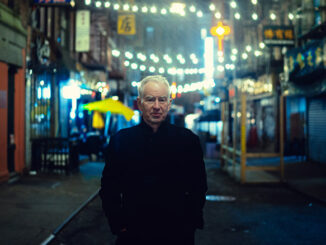One of the interesting “facts” about history is that it is subject to plenty of creative editing through the ages. As an example, if you were a petty lord in King Henry’s court, would you be discussing the sexual exploits of your lusty young monarch in any but the most glowing and polite terms? Doubtful, particularly since Henry, having been driven to distraction and possibly madness by the lovely Anne, is acting a bit like a loose cannon — at least he does in the opening episode of this season’s Tudors and the action has only just begun. (Spoiler alert from this point forward)
Much of the action in the first episode centers on the poisoning of Bishop Fisher and other Roman Catholic clerics who spoke out against the king’s marriage to Anne Boleyn? Did it occur? Yes, and his cook apparently did it. And since cooks don’t usually poison their employers, it is safe to assume that he did so because someone paid him. Now here is where history gets vague. Many experts believe it was Henry himself who arranged the deed or possibly Anne herself, though in The Tudors, it was Anne’s father. Why suspect Henry? Well, the king did, as Shakespeare might comment, protest too much, ordering that poisoners be boiled in oil. Then again, Henry was far more direct in dealing with adversaries, so perhaps he was merely trying to discourage others from taking matters of life and death out of his far-from-innocent hands.
But was Thomas Boleyn really one of those who plotted to poison Fisher? That is where the conjecture comes in. But given the man’s smarmy and scheming nature (documented in historical accounts of the era), it is easy to conjecture that he had a hand in it. And if he had a hand, he might have been at the execution just to make sure the poisoner did not give away any information in the last horrible moments of his life.
I disagree with critics who say the series plays far too loose with history. It does in some broad ways — Henry had two sisters, for example. But in the areas where it counts, the core of story, it is pretty faithful to actual events. After all, nothing needs to be added for dramatic effect given that the era had more than enough drama to tap. But the story behind the drama, that’s the realm of screenwriters asking “what if?”
This makes viewers ask the same question. Fortunately, there is Google and ample sources there to allow fans of the series to debate whether Boleyn paid the poisoner, whether Wolsley committed suicide (as shown near the end of last season) and, if so, did he use a knife or poison? One point is known — Catherine did indeed make it her duty to sew her husband’s shirts and those who make light of this are not seeing it for the intimate domestic act it was. Nor, I would guess, will anyone see the lovely Anne picking up her needle in Catherine’s banished stead.



